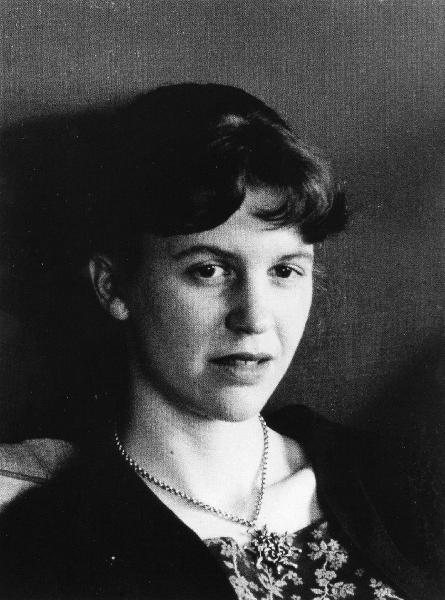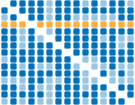Plath, Sylvia: A hold és a tiszafa (The Moon and the Yew Tree in Hungarian)
|
The Moon and the Yew Tree (English)This is the light of the mind, cold and planetary The trees of the mind are black. The light is blue. The grasses unload their griefs on my feet as if I were God Prickling my ankles and murmuring of their humility Fumy, spiritous mists inhabit this place. Separated from my house by a row of headstones. I simply cannot see where there is to get to. The moon is no door. It is a face in its own right, White as a knuckle and terribly upset. It drags the sea after it like a dark crime; it is quiet With the O-gape of complete despair. I live here. Twice on Sunday, the bells startle the sky -- Eight great tongues affirming the Resurrection At the end, they soberly bong out their names. The yew tree points up, it has a Gothic shape. The eyes lift after it and find the moon. The moon is my mother. She is not sweet like Mary. Her blue garments unloose small bats and owls. How I would like to believe in tenderness - The face of the effigy, gentled by candles, Bending, on me in particular, its mild eyes. I have fallen a long way. Clouds are flowering Blue and mystical over the face of the stars Inside the church, the saints will all be blue, Floating on their delicate feet over the cold pews, Their hands and faces stiff with holiness. The moon sees nothing of this. She is bald and wild. And the message of the yew tree is blackness - blackness and silence.
|
A hold és a tiszafa (Hungarian)Ez az elme fénye, hideg és nyugtalan. Az elme fái feketék. A fény kék. A fűszálak lábam elé ejtik le bánatuk, akárha Isten volnék. Csiklandozzák bokám, s alázatuk motyogják. Szeszgőzös párák lakják ezt a helyet, Mit házamtól egy sor sírkő kerít el. Egyszerűen nem látom át, hova is legyünk. A hold nem ajtó. Öntörvényű arc, Csülök-fehér és roppant izgatott. Sötét bűnként vonszolja magával a tengert; és a nyugalma Kétségbeesett Ó-tátogás. Itt élek. Vasárnaponta kétszer harangok ijesztik a mennyet - Nyolc nagy nyelv esküszi újra a feltámadást. Míg végül józanul nevüket kongatják ki mind. A tiszafa fölfelé mutat. Gótikus alkat. A szem fölmászik rajta és a holdra talál. A hold az anyám. Nem oly édes, mint Mária. Kék köntöséből kis bagoly s vakondok szalad elő. Mily szívesen bíznék a gyöngédségben én! - A képmás arca, gyertyafény-puhítva Lágy pillantással persze rám. Régóta zuhanok. Felhők virágzanak Kék misztikával csillagok arcán. A templomban kékülnek sorra a szentek, Kényes lábuk hideg padsoron úszik, Arcuk, kezük üdvösség-dermedés. Nem lát semmit a hold. Eszelős, kopasz. Tiszafák híre pedig a fekete - fekete és a csönd.
|





